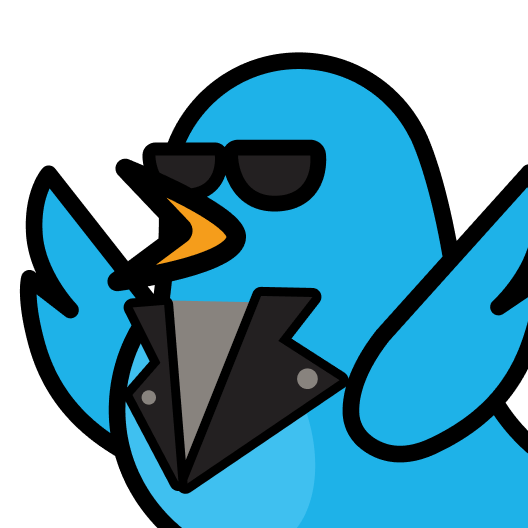
On your journey to find a new job, every interview is a critical battle. Among the many questions you'll face, there's one that is a staple for nearly every interviewer and one of the most dreaded by candidates: "Why did you decide to leave your previous job?"
This question seems simple, yet it's filled with hidden traps. A good answer can showcase your professionalism, positive attitude, and career planning. A poor one, however, can plant seeds of doubt in the interviewer's mind or, worse, cost you the job offer you've been hoping for.
This article will provide a deep dive into the motivations behind this question, offer golden rules for crafting your response, and provide 5 perfect sample answers for different scenarios. We'll help you transform this potential crisis into a valuable opportunity to highlight your strengths.
Why Do Interviewers Always Ask About Your Reason for Leaving?
Before preparing your answer, you must first understand what information the interviewer is trying to gather. Their goal is not to gossip or make things difficult for you, but to assess the following key points:
- Motivation and Stability: Are you "escaping" from your last job or "running towards" a new opportunity? Interviewers are looking for a team member who has a clear career plan and can contribute stably in the long run, not someone who is likely to leave at the first sign of trouble.
- Professionalism and Interpersonal Skills: How do you describe your former company, manager, and colleagues? Your response directly reflects your attitude and maturity. A true professional, even if dissatisfied, will not complain or speak ill of others publicly.
- Values and Cultural Fit: Is the reason you left something our company can provide? Conversely, is the thing you couldn't tolerate also present in our company? This helps determine if you will integrate well with our team and corporate culture.
- Problem-Solving Skills and Self-Awareness: When you encountered difficulties or dissatisfaction, how did you handle them? Did you try to communicate and resolve the issue, or did you simply give up? This reveals your resilience and ability to manage conflict.
Understanding these points makes it clear that a good answer isn't about the "reason for leaving" itself, but about how you frame and interpret it, guiding the conversation toward a positive and promising future.
The 3 Golden Rules for Answering "Why You Left"
Regardless of your actual reason for leaving, be sure to follow these three golden rules when structuring your answer:
Rule 1: Be Positive & Forward-Looking
Shift the focus of your answer to your "pursuit of the future" rather than "complaints about the past." Talk more about what you hope to gain in the new role, such as new challenges, greater room for development, or opportunities to learn new skills.
Rule 2: Be Honest but Strategic
Never lie about your reason for leaving, as a background check can easily expose falsehoods. However, being honest doesn't mean you have to share every negative detail. Choose the most professional and least damaging reason, and omit complex stories about interpersonal conflicts or office politics.
Rule 3: Be Concise & Relevant
Your answer should be brief, ideally lasting one to two minutes. After clearly stating your reason, the most crucial step is to pivot the conversation to why you are interested in this specific position. Explain to the interviewer that your past experiences have clarified your career goals, and this job perfectly aligns with them.
5 Perfect Sample Answers for Common Scenarios
Here are five detailed sample answers for common departure scenarios. Feel free to adapt them to your own situation.
Scenario 1: Seeking Greater Career Development and Challenges
This is the most common and safest answer. It's suitable if you felt you had hit a ceiling at your previous company or if your work had become monotonous.
Sample Answer:
"I was with my previous company for X years, and I'm very grateful for the opportunities they gave me. It allowed me to build a solid foundation in [mention a specific field, e.g., digital marketing, project management] and successfully complete projects like [mention 1-2 specific achievements]. At this point in my career, I feel I'm ready to take on greater challenges and want to apply my skills on a larger platform, handling more core business functions.
I noticed that your company is expanding in [mention the new company's business direction], and this role requires [mention key skills from the job description], which is precisely the area I am eager to develop further. I am confident that my past experience can bring value to your team, and at the same time, I can achieve the growth I am seeking here."
Critique: This answer begins by acknowledging the contributions of the former employer, then points to a personal need for growth, and finally connects perfectly to the opportunity at the new company. It demonstrates strong ambition and a positive outlook.
Scenario 2: Company Restructuring, Downsizing, or Layoffs
This is an "involuntary" and objective reason, making it relatively easy to explain. The key is to demonstrate a positive mindset.
Sample Answer:
"Due to a recent strategic shift, my previous company underwent an organizational restructuring. The department I was in was downsized, and my position was unfortunately affected. While this was an unexpected change, I view it as a great opportunity to reassess my career direction.
During my job search, I've been very impressed with your company's [mention a specific aspect, like its culture or products]. In particular, the responsibilities of this role, which include [mention key responsibilities], align perfectly with my experience in [mention a relevant project or experience]. Therefore, I am very hopeful for the opportunity to join your team and contribute my skills."
Critique: This response honestly states the objective situation without any negative emotion. It quickly pivots to framing the situation as an "opportunity" and explains why you are a good fit for the new company, showcasing maturity and resilience.
Scenario 3: Switching Career Paths or Industries
When you want to transition from field A to field B, the focus should be on explaining your motivation for the change and the efforts you've made to prepare for it.
Sample Answer:
"While working in [old field], I discovered I have a great passion for [new field, e.g., data analytics]. In my spare time, I have been systematically learning the relevant knowledge and skills through [mention specific actions, e.g., online courses, certifications, personal projects].
Although my professional background is primarily in [old field], the [mention transferable skills, e.g., logical thinking, communication skills] I developed are highly applicable to this new area. I am very eager to combine my passion with my newly acquired skills in an industry with strong potential, and I see this position at your company as the ideal starting point."
Critique: This answer clearly shows that your motivation is not a whim but a well-thought-out decision backed by tangible preparation, which greatly enhances your credibility.
Scenario 4: Seeking Better Work-Life Balance
This is a more sensitive reason that needs to be handled with care to avoid giving the impression that you "don't want to work hard."
Sample Answer:
"The nature of my previous industry required long and high-intensity hours. While I learned a great deal from that experience, it also made me realize that for the long term, I want to find a role where I can contribute in a more focused and efficient manner while maintaining a healthy personal life.
I believe a sustainable work model allows me to stay at my best and make a more stable, long-term contribution to a company. I understand that your company promotes a culture of efficient work and team collaboration, which is exactly the environment I am looking for. I hope to dedicate my full energy during work hours to create maximum value."
Critique: Avoid using direct complaints like "too much overtime" or "I was too tired." Instead, frame your desire in terms of "seeking efficiency" and "long-term contribution," packaging a personal need as a benefit to the company.
Scenario 5: Mismatch in Company Culture or Values
This is another high-difficulty answer. Remember, never criticize your former company's culture. Instead, emphasize your admiration for the new company's culture.
Sample Answer:
"As I look for my next career move, company culture and values are very important factors for me. Personally, I thrive in an environment that is open, transparent, and encourages teamwork and collaboration.
Based on my research, I strongly identify with your company's value of [mention a specific value, e.g., 'customer obsession' or 'embracing innovation']. I believe that in such a cultural atmosphere, my personal traits and work style can be fully utilized, and I would be able to integrate into the team quickly to work towards common goals."
Critique: This response avoids any negative mention of the previous company. By describing the kind of culture you "prefer," you subtly hint that your former employer may have lacked these qualities. At the same time, praising the new company's culture shows that you've done your homework.
Answers to Absolutely Avoid
- Complaining about a former boss or colleagues: "My boss was a micromanager," or "My colleagues were difficult to work with." This only makes you appear unprofessional and prone to blaming others.
- Complaining about low salary: While this may be true, stating it upfront makes you seem motivated only by money. Salary should be negotiated at a later stage, not used as the primary reason for leaving.
- Saying the work was boring or there was nothing to do: This raises questions about your initiative and proactivity. Why didn't you proactively find ways to contribute?
- Giving a vague, generic answer: "I just wanted a change of scenery," or "I felt it was time to move on." This shows a lack of career planning.
- Revealing you were fired for poor performance or a mistake: This is the most fatal error. If this is your situation, try to frame it using the "company restructuring" approach or seek advice from a professional career coach to help craft your story.
Conclusion: Turn a Crisis into an Opportunity to Showcase Your Value
The question, "Why did you leave your last job?" is not designed to make you relive past grievances. It's an invitation to demonstrate your wisdom.
Remember, your answer should be a complete story that starts with a positive mindset and ends with enthusiasm for the new job. Prepare in advance, think clearly about the core message you want to convey, and connect it closely to the position you are applying for. When you can answer this question with confidence, sincerity, and strategy, you are no longer a passive candidate but a professional who knows how to turn past experience into future value.
Good luck with your interview, and may you land your dream job

